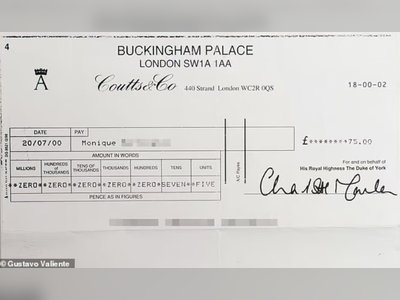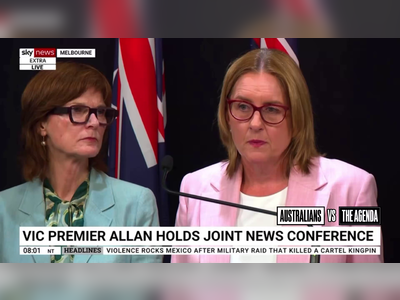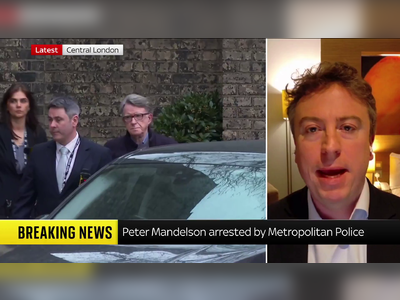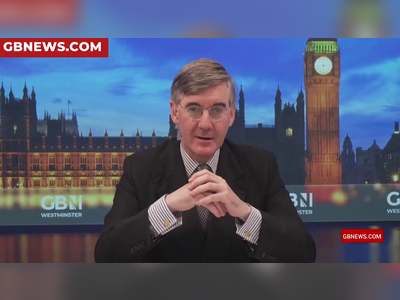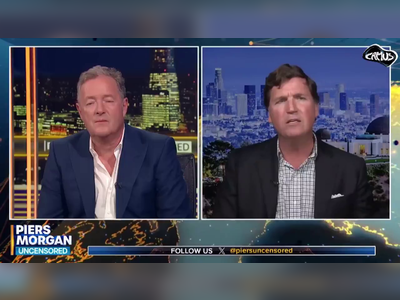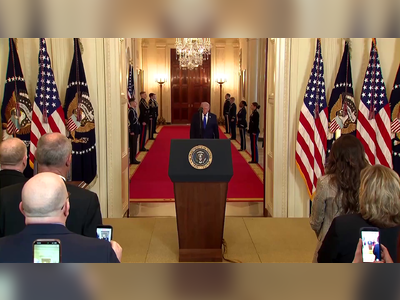
UK Economy Struggles to Gain Traction with Tepid GDP Growth
Rachel Reeves Faces Challenges as Latest Economic Figures Fall Short of Expectations
The UK economy inched forward in November, recording a modest growth of 0.1%, according to the latest data from the Office for National Statistics (ONS).
This marks the first positive growth since August and follows two consecutive months of decline, which had fueled concerns of a looming 'technical recession.' This comes after the third quarter’s economic stagnation following Labour's electoral triumph.
The ONS data reveals a mixed economic landscape.
The service sector, which plays a pivotal role in the UK economy, contributed 0.1% to the overall growth.
Within this sector, noticeable gains were seen in wholesaling, hospitality, and IT services.
However, these gains were counterbalanced by declines in accountancy and business rentals.
Meanwhile, the production sector faced a contraction of 0.4%, driven by declines in manufacturing and oil and gas extraction, while construction saw a 0.4% uptick, courtesy of burgeoning commercial projects.
The economic figures have laid the groundwork for the Bank of England to possibly contemplate cutting interest rates in its upcoming policy meeting next month.
The sluggish growth, paired with unexpectedly low inflation rates of 2.5% in December, has seen the pound dip slightly against the dollar.
Chancellor Rachel Reeves, in response to the less-than-anticipated economic revival, reiterated her pledge to accelerate economic reforms and stimulative measures.
She stated, 'I am determined to go further and faster to kickstart economic growth, which is the number one priority in our Plan for Change,' underlining the government’s ambition to revitalize the UK's economic landscape and secure more disposable income for the working populace.
On the opposition side, Shadow Chancellor Mel Stride criticized the Labour government's handling of the economy, remarking that the UK had inherited the fastest-growing economy within the G7 but was now facing stagnation.
He called for immediate policy reconsiderations to salvage investment and safeguard jobs.
Commenting on the numbers, Liz McKeown, ONS Director of Economic Statistics, noted, 'The economy continues to be broadly flat, having grown slightly in November following two small falls in the previous months.'
Investment analysts have also weighed in.
Lindsay James, a strategist at Quilter Investors, pointed out that while the recession risk remains minimal, the present economic conditions are indicative of persistent vulnerabilities in the UK’s economic structure.
Factors such as increased national insurance contributions and potential stagnation in wage growth could further dampen consumer spending, according to James.
Jeremy Batstone-Carr of Raymond James Investment Services remarked on the sluggish post-budget economic activity as reflective of weak domestic demand coupled with global uncertainties, specifically citing the influence of US electoral outcomes on this front.
In brighter news, the services and construction sectors provide some semblance of stability and growth, albeit marginal.
Adding to the economic challenges, the UK’s goods and services trade deficit, excluding precious metals, widened sharply by £3.8 billion to £10.8 billion in the months leading to November 2024 compared to the previous quarter, underlining persistent international trade imbalances that compound domestic economic efforts.
As the UK navigates these economic challenges, the focus turns towards government policy responses, stakeholder consultations, and potential shifts in consumer sentiment that collectively hold sway over the country’s economic recovery trajectory.
This marks the first positive growth since August and follows two consecutive months of decline, which had fueled concerns of a looming 'technical recession.' This comes after the third quarter’s economic stagnation following Labour's electoral triumph.
The ONS data reveals a mixed economic landscape.
The service sector, which plays a pivotal role in the UK economy, contributed 0.1% to the overall growth.
Within this sector, noticeable gains were seen in wholesaling, hospitality, and IT services.
However, these gains were counterbalanced by declines in accountancy and business rentals.
Meanwhile, the production sector faced a contraction of 0.4%, driven by declines in manufacturing and oil and gas extraction, while construction saw a 0.4% uptick, courtesy of burgeoning commercial projects.
The economic figures have laid the groundwork for the Bank of England to possibly contemplate cutting interest rates in its upcoming policy meeting next month.
The sluggish growth, paired with unexpectedly low inflation rates of 2.5% in December, has seen the pound dip slightly against the dollar.
Chancellor Rachel Reeves, in response to the less-than-anticipated economic revival, reiterated her pledge to accelerate economic reforms and stimulative measures.
She stated, 'I am determined to go further and faster to kickstart economic growth, which is the number one priority in our Plan for Change,' underlining the government’s ambition to revitalize the UK's economic landscape and secure more disposable income for the working populace.
On the opposition side, Shadow Chancellor Mel Stride criticized the Labour government's handling of the economy, remarking that the UK had inherited the fastest-growing economy within the G7 but was now facing stagnation.
He called for immediate policy reconsiderations to salvage investment and safeguard jobs.
Commenting on the numbers, Liz McKeown, ONS Director of Economic Statistics, noted, 'The economy continues to be broadly flat, having grown slightly in November following two small falls in the previous months.'
Investment analysts have also weighed in.
Lindsay James, a strategist at Quilter Investors, pointed out that while the recession risk remains minimal, the present economic conditions are indicative of persistent vulnerabilities in the UK’s economic structure.
Factors such as increased national insurance contributions and potential stagnation in wage growth could further dampen consumer spending, according to James.
Jeremy Batstone-Carr of Raymond James Investment Services remarked on the sluggish post-budget economic activity as reflective of weak domestic demand coupled with global uncertainties, specifically citing the influence of US electoral outcomes on this front.
In brighter news, the services and construction sectors provide some semblance of stability and growth, albeit marginal.
Adding to the economic challenges, the UK’s goods and services trade deficit, excluding precious metals, widened sharply by £3.8 billion to £10.8 billion in the months leading to November 2024 compared to the previous quarter, underlining persistent international trade imbalances that compound domestic economic efforts.
As the UK navigates these economic challenges, the focus turns towards government policy responses, stakeholder consultations, and potential shifts in consumer sentiment that collectively hold sway over the country’s economic recovery trajectory.



